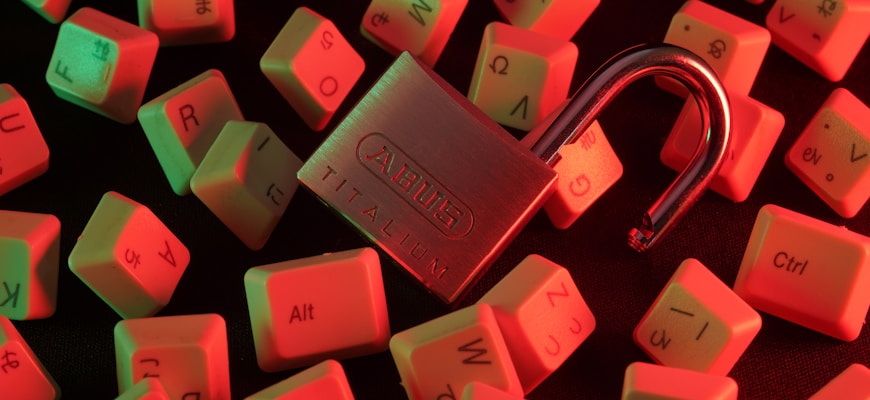How Crypto Wallets Work: A Deep Dive into Digital Asset Storage

- Understanding the basics of crypto wallets
- Exploring the different types of crypto wallets available
- The importance of private keys in digital asset storage
- Security measures to protect your crypto assets
- How transactions are made through crypto wallets
- Tips for choosing the right crypto wallet for your needs
Understanding the basics of crypto wallets
Crypto wallets are digital tools that allow users to securely store and manage their cryptocurrencies. These wallets utilize a combination of private and public keys to enable users to send and receive digital assets on the blockchain. It is essential to understand the basics of crypto wallets to ensure the safety and security of your digital assets.
There are different types of crypto wallets, including hardware wallets, software wallets, and paper wallets. Hardware wallets are physical devices that store your private keys offline, making them less vulnerable to hacking. Software wallets, on the other hand, are applications or programs that can be downloaded onto your computer or smartphone. Paper wallets are physical copies of your private and public keys that can be stored in a safe place.
When you create a crypto wallet, you will be given a unique address that you can use to send and receive cryptocurrencies. Your private key, which should be kept secret, is used to sign transactions and access your digital assets. It is crucial to back up your private key and store it in a secure location to prevent the loss of your cryptocurrencies.
It is important to choose a reputable and secure crypto wallet to ensure the safety of your digital assets. Research different wallet providers and read reviews from other users to determine which option is best for you. Remember to always keep your private key confidential and never share it with anyone to protect your cryptocurrencies from theft or hacking.
Exploring the different types of crypto wallets available
When it comes to storing digital assets like cryptocurrencies, there are several types of wallets available to choose from. Each type of wallet offers its own unique features and benefits, catering to different needs and preferences of users. It’s important to explore the different options to find the best fit for your specific requirements.
One of the most common types of crypto wallets is a software wallet. These wallets can be accessed through desktop or mobile applications, making them convenient and easy to use. Software wallets are typically free to download and install, making them accessible to a wide range of users. They offer a good balance between security and usability, making them a popular choice for many cryptocurrency holders.
Another type of crypto wallet is a hardware wallet. Hardware wallets are physical devices that store the user’s private keys offline, providing an extra layer of security against online threats. While hardware wallets may come with a higher upfront cost, they are considered one of the safest options for storing large amounts of cryptocurrency. They are ideal for long-term storage and for users who prioritize security above all else.
Paper wallets are another option for storing cryptocurrencies. Paper wallets involve printing out the user’s private and public keys on a piece of paper, which can then be stored in a secure location. While paper wallets may not be as convenient as software or hardware wallets, they are considered extremely secure since they are not connected to the internet in any way. Paper wallets are a good option for users looking for a low-cost and secure way to store their cryptocurrency.
In conclusion, there are several types of crypto wallets available, each offering its own set of advantages and disadvantages. Whether you choose a software, hardware, or paper wallet will depend on your individual needs and preferences. It’s important to research and understand the different types of wallets to make an informed decision on which one is best for you.
The importance of private keys in digital asset storage
One of the most crucial aspects of digital asset storage in crypto wallets is the importance of private keys. Private keys act as a secure password that allows individuals to access and manage their cryptocurrencies. These keys are essentially what gives users ownership and control over their assets, making them a fundamental component of the storage process.
Private keys are generated through complex cryptographic algorithms, ensuring that they are unique and virtually impossible to guess. It is essential to keep private keys confidential and secure, as anyone who gains access to them can potentially control the associated assets. Without private keys, users risk losing their cryptocurrencies permanently, as there is no way to recover them without this crucial piece of information.
When setting up a crypto wallet, users are typically prompted to create a backup of their private keys. This backup is critical in case the original keys are lost or compromised. Storing private keys offline in a secure location, such as a hardware wallet or a piece of paper kept in a safe, is a common practice to mitigate the risk of theft or hacking.
Overall, understanding the importance of private keys in digital asset storage is paramount for anyone looking to securely store and manage their cryptocurrencies. By safeguarding private keys and following best practices for key management, individuals can ensure that their assets remain safe and accessible for the long term.
Security measures to protect your crypto assets
Ensuring the security of your crypto assets is paramount when using a digital wallet. There are several measures you can take to protect your investments from unauthorized access and potential theft. Below are some security practices to consider:
- Use a strong password: When creating an account for your crypto wallet, make sure to use a complex password that includes a combination of letters, numbers, and special characters.
- Enable two-factor authentication: Adding an extra layer of security to your account by enabling two-factor authentication can help prevent unauthorized access even if your password is compromised.
- Keep your recovery phrase safe: Most crypto wallets provide users with a recovery phrase that can be used to restore access to their account. Make sure to store this phrase in a secure location away from prying eyes.
- Avoid public Wi-Fi networks: When accessing your crypto wallet, avoid using public Wi-Fi networks as they can be vulnerable to hacking. Instead, use a secure and private internet connection.
- Regularly update your wallet software: To stay ahead of potential security threats, make sure to regularly update your wallet software to the latest version. Updates often include patches for known vulnerabilities.
By following these security measures, you can help safeguard your crypto assets and minimize the risk of unauthorized access to your digital wallet.
How transactions are made through crypto wallets
One of the key functionalities of crypto wallets is facilitating transactions with digital assets. When you want to send or receive cryptocurrency, you need to use your crypto wallet to initiate and authorize the transaction. Here’s how transactions are typically made through crypto wallets:
1. Select the cryptocurrency: The first step in making a transaction through your crypto wallet is to select the specific cryptocurrency you want to send or receive. Most wallets support a variety of digital assets, so you’ll need to choose the one you want to work with.
2. Enter the recipient’s address: To send cryptocurrency to someone else, you’ll need to enter their wallet address. This address is a unique string of characters that identifies the recipient’s wallet on the blockchain. Make sure to double-check the address to avoid any mistakes, as transactions are irreversible.
3. Set the transaction amount: After entering the recipient’s wallet address, you’ll need to specify the amount of cryptocurrency you want to send. Some wallets also allow you to include a memo or note with the transaction to provide additional context.
4. Confirm the transaction: Once you’ve entered all the necessary information, you’ll need to confirm the transaction. Depending on the wallet you’re using, you may be asked to review the details of the transaction before finalizing it. Once you confirm, the transaction will be broadcast to the blockchain network for validation.
5. Wait for confirmation: After the transaction is broadcast to the blockchain network, it will need to be validated by miners. This process typically takes a few minutes to complete, but it can vary depending on network congestion and other factors. Once the transaction is confirmed, the recipient will be able to see the funds in their wallet.
By following these steps, you can easily make transactions through your crypto wallet and securely transfer digital assets to others. It’s important to always exercise caution and double-check all transaction details to ensure the smooth and secure transfer of cryptocurrency.
Tips for choosing the right crypto wallet for your needs
When it comes to choosing the right crypto wallet for your needs, there are several factors to consider. One important aspect to keep in mind is the type of cryptocurrencies you plan to store. Some wallets may only support certain types of digital assets, so it is crucial to ensure compatibility with the coins you hold.
Another key consideration is the level of security offered by the wallet. Look for features such as two-factor authentication, multi-signature functionality, and encryption to safeguard your funds. Additionally, consider whether you want a hardware wallet for added security or a software wallet for convenience.
Ease of use is also an important factor to consider when selecting a crypto wallet. Choose a wallet that offers a user-friendly interface and intuitive design to make managing your digital assets hassle-free. Some wallets even offer mobile applications for on-the-go access to your funds.
Lastly, consider the reputation and track record of the wallet provider. Look for reviews and feedback from other users to gauge the reliability and trustworthiness of the wallet. Opt for a wallet from a reputable company with a history of providing secure and reliable services.
By taking these tips into account, you can choose the right crypto wallet that meets your needs and helps you securely store your digital assets.



